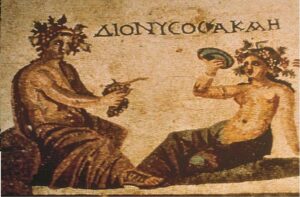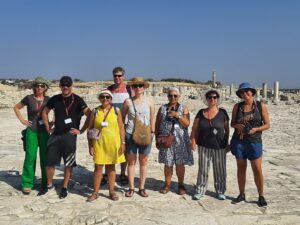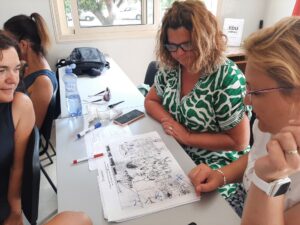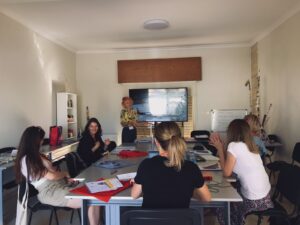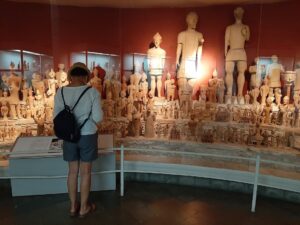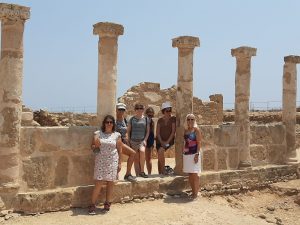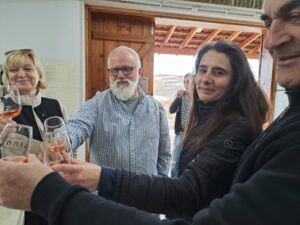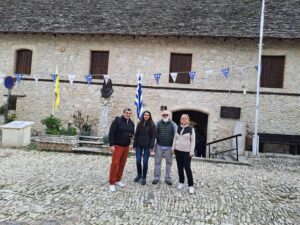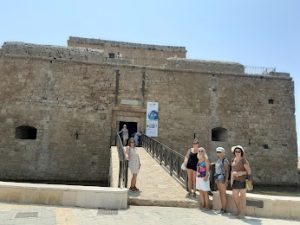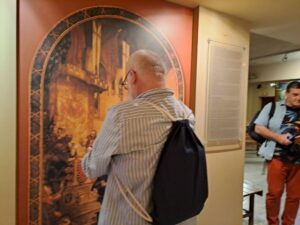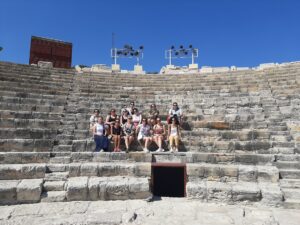IN THE ROOTS OF WINE- Ancient Greek history, mythology & art (6-day/ 7-day course) LIMASSOL
The history of Cyprus is one of the oldest in the World. Cyprus has been a wine-growing and wine-producing country for millennia and wine has been a key factor in the Cypriot diet and culture. There is archaeological evidence that winemaking on the island may have existed 6000 years ago. Internationally it is best known for Commandaria wine, the wine of kings which it also called as the king of wines. Dionysus, the god of wine in Ancient Greek mythology, myths and traditions about wine, art and history will be revealed in this journey. Monasteries and their contribution to the wine history & production will be studied. Participants have also the chance to visit vineyards and get better acquainted with the island’s wineries.
This 6-day course is addressed to teachers, school staff and adults who have interest in ancient Greek history, mythology, and art. Discussions, site visits and group work will encourage sharing ideas and exchange of practice between participants. There is also the possibility to extend the course to 7-day.
Objectives
During the course, participants will:
- be informed about the history of wine in Cyprus
- search for myths and legends in various historical places related with wine the god of wine Dionysus
- examine how the wine became important part in the Cypriot diet
- find common historical and cultural links with other civilizations
- explore archaeological sites, monuments and museums
- explore monasteries with long tradition in wine production, as and wineries
- experience the culture and traditions of the island
Methodology
The working methods that are used are highly practical and participatory. The experiential method is used to encourage the search for contemporary pedagogical theories and teaching approaches. The hands-on approach is used to examine real examples, case studies, surveys and simulations. The group activities foster mutual learning, cooperation and collaboration between participants. The discussions encourage sharing ideas, intercultural dialogue and the exchange of good practices between the participants. Social, networking and cultural activities give participants the opportunity to establish professional cooperation and links with teachers, staff, schools and organisations in Europe. At the end of the course, participants fill in an e-questionnaire for evaluation.
Preparation
After confirming registration, participants will be informed about the details of the course (arrival, daily programme). Participants will be able to introduce themselves and bring a few examples of routines and practices that they apply to their teaching.
Course schedule
DAY 1
• Winemaking in Cyprus
• The history of wine in Cyprus- Antiquity
• The Greek god Dionysus
• Visit to Kourion archaeological site
• Explorations on the archaeological site
DAY 2
• Visit to the agro-tourism village of Omodos.
• The traditional ‘Linos’ (old winery)
• The medieval monastery of the Holy Cross
• Visit to a local winery. Discussion with the producer.
• Wine tasting
• Data collection for the group work
DAY 3
• Visit to Limassol Old city center, Castle area, Carob Mill Museum and other monuments.
• Visit to the Medieval Castle & Museum
• Dionysus birth and childhood
• Symposiums
• Data collection for the group work
DAY 4
• Visit to the Kolossi Castle. The production of Commandaria wine by knights and its contri-bution to the history of wine.
• Visit to the Cyprus Wine museum.
• Myths about Dionysus
• Group work
DAY 5
• Visit to Limassol Archaeological Museum
• Data collection for group work
• The god of Dionysus & Paphos town
• Cypriot Nama
• Commandaria wine
• Christianity & wine
• The history of wine in Cyprus- Medieval period
DAY 6
• Ottoman period– 1878
• Monasteries and their contribution to the wine history & production
• British period 1878–1960
• Presentation of group work
• Review
• certificates.
DAY 7 (optional)
TOUR TO PAPHOS TOWN
It includes a tour with 5-stops (9:00 am-- 5:00 pm) 5:00 pm)
• Tomb of the kings
• Catacomb of Agia Solomoni
• Paphos Archaeological Park with Roman mosaics
• Paphos Medieval Castle and port
• Petra tou Romiou (The birthplace of Aphrodite)
Sessions
• 20.01.2024 - 25.01.2024
• 23.03.2024 - 28.03.2024
• 08.06.2024 - 13.06.2024
• 17.08.2024 - 22.08.2024
• 02.11.2024 - 07.11.2024
• 14.12.2024 - 19.12.2024
• 18.01.2025 - 23.01.2025
• 22.03.2025 - 27.03.2025
• 14.06.2025 - 19.06.2025
• 16.08.2025 - 21.08.2025
• 25.10.2025 - 30.10.2025
• 06.12.2025 - 11.12.2025

